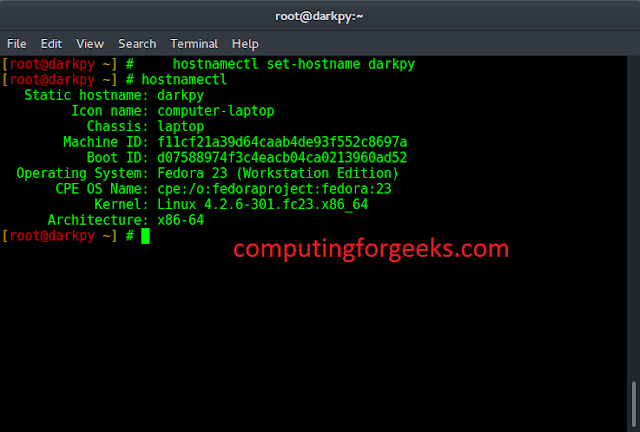Given a positive integer N, the task is to find the smallest integer greater than or equal to X, having all its digits divisible by the non-zero digits of N.
Examples:
Input: N = 280
Output: 280
Explanation:
280 is the smallest which is divisible by the digits 8 and 2.Input: N = 32
Output: 36
Explanation:
36 is the smallest number which is divisible by both the digits 2 and 3.
Approach: The idea is to find the LCM of all the non-zero digits of X and then just find the next greater multiple of that LCM value which is greater than N.
Below is the implementation of the above approach:
C++
// C++ program for the above approach#include "bits/stdc++.h"using namespace std;// Function to calculate the LCMint LCM(int A, int B){ return (A * B / __gcd(A, B));}// Function to find the smallest number// satisfying given constraintsint findSmallestNumber(int X){ // LCM value is 1 initially int lcm = 1; int temp = X; // Finding the LCM of all // non zero digits while (temp) { int last = temp % 10; temp /= 10; if (!last) continue; // Update the value lcm lcm = LCM(lcm, last); } // Stores ceil value int answer = ((X + lcm - 1) / lcm) * lcm; // Print the answer cout << answer;}// Driver Codeint main(){ int X = 280; // Function Call findSmallestNumber(X); return 0;} |
Java
// Java program for the above approachclass GFG{ // Function to calculate the LCM static int LCM(int A, int B) { return (A * B / __gcd(A, B)); } // Function to find the smallest number // satisfying given constraints static void findSmallestNumber(int X) { // LCM value is 1 initially int lcm = 1; int temp = X; // Finding the LCM of all // non zero digits while (temp > 0) { int last = temp % 10; temp /= 10; if (last == 0) continue; // Update the value lcm lcm = LCM(lcm, last); } // Stores ceil value int answer = ((X + lcm - 1) / lcm) * lcm; // Print the answer System.out.print(answer); } static int __gcd(int a, int b) { return b == 0 ? a:__gcd(b, a % b); } // Driver Code public static void main(String[] args) { int X = 280; // Function Call findSmallestNumber(X); }}// This code is contributed by shikhasingrajput |
Python3
# Python3 program for the above approachimport math# Function to calculate the LCMdef LCM(A, B): return (A * B // math.gcd(A, B))# Function to find the smallest number# satisfying given constraintsdef findSmallestNumber(X): # LCM value is 1 initially lcm = 1 temp = X # Finding the LCM of all # non zero digits while (temp): last = temp % 10 temp //= 10 if (not last): continue # Update the value lcm lcm = LCM(lcm, last) # Stores ceil value answer = ((X + lcm - 1) // lcm) * lcm # Print the answer print(answer)# Driver Codeif __name__ == "__main__": X = 280 # Function Call findSmallestNumber(X)# This code is contributed by chitranayal |
C#
// C# program for the above approachusing System;class GFG{ // Function to calculate the LCM static int LCM(int A, int B) { return (A * B / __gcd(A, B)); } // Function to find the smallest number // satisfying given constraints static void findSmallestNumber(int X) { // LCM value is 1 initially int lcm = 1; int temp = X; // Finding the LCM of all // non zero digits while (temp > 0) { int last = temp % 10; temp /= 10; if (last == 0) continue; // Update the value lcm lcm = LCM(lcm, last); } // Stores ceil value int answer = ((X + lcm - 1) / lcm) * lcm; // Print the answer Console.Write(answer); } static int __gcd(int a, int b) { return b == 0 ? a:__gcd(b, a % b); } // Driver Code public static void Main(String[] args) { int X = 280; // Function Call findSmallestNumber(X); }}// This code is contributed by shikhasingrajput |
Javascript
<script>// JavaScript program for the above approach// Function to calculate the LCMfunction LCM(A,B){ return (A * B / __gcd(A, B));}// Function to find the smallest number // satisfying given constraintsfunction findSmallestNumber(X){ // LCM value is 1 initially let lcm = 1; let temp = X; // Finding the LCM of all // non zero digits while (temp > 0) { let last = temp % 10; temp = Math.floor(temp/10); if (last == 0) continue; // Update the value lcm lcm = LCM(lcm, last); } // Stores ceil value let answer = Math.floor((X + lcm - 1) / lcm) * lcm; // Print the answer document.write(answer);}function __gcd(a,b){ return b == 0 ? a:__gcd(b, a % b);} // Driver Codelet X = 280;// Function CallfindSmallestNumber(X);// This code is contributed by rag2127</script> |
280
Time Complexity: O(N*log10N)
Auxiliary Space: O(1)
Ready to dive in? Explore our Free Demo Content and join our DSA course, trusted by over 100,000 neveropen!




